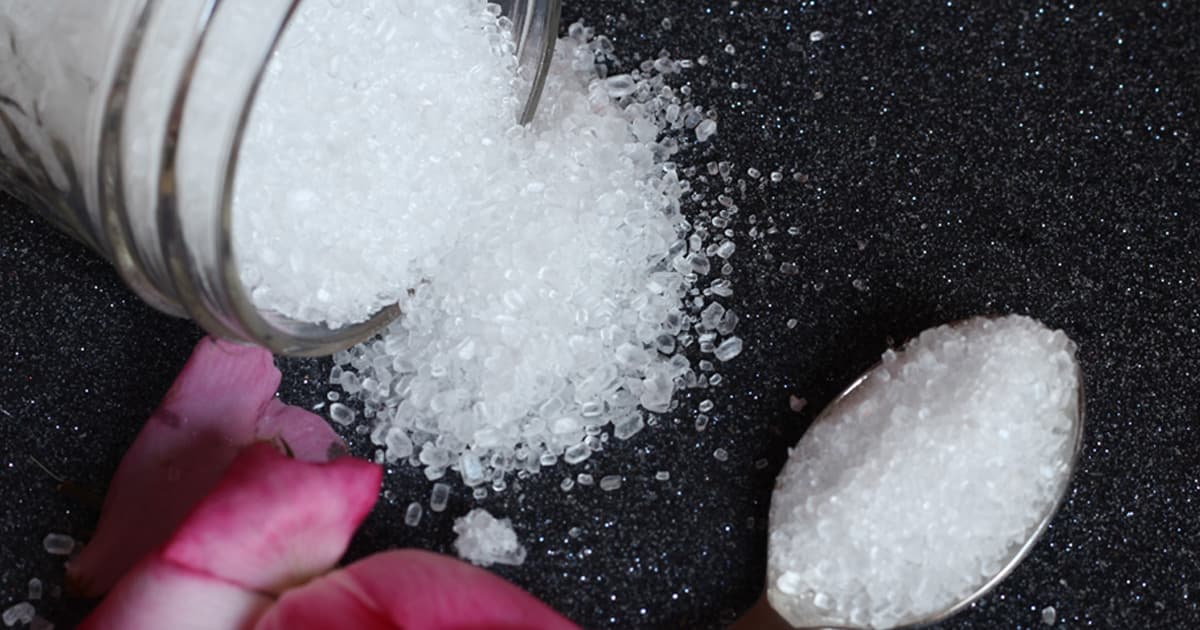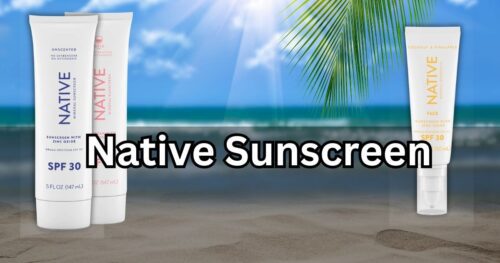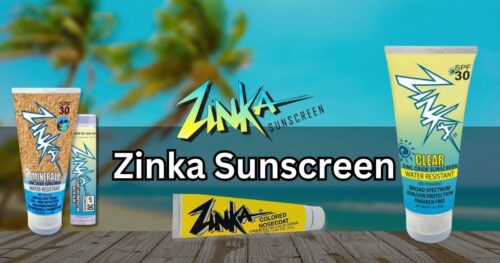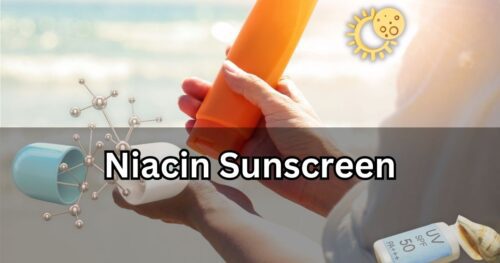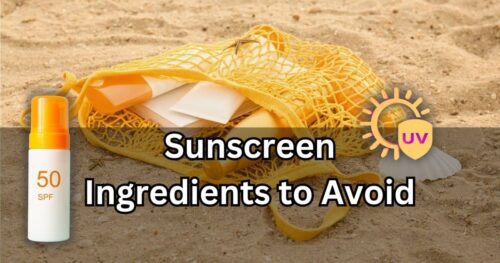Sunburn is a painful condition. We all want the symptoms to go away as soon as possible. Apart from medical treatment, we seek some home remedies for sunburn, which actually provide relief.
There are many home remedies, so which one can be used? As a doctor, I have seen numerous patients affected by sunburn. Many of them used Epsom salt. It worked wonders for them in alleviating pain, burning, swelling, and other symptoms of sunburn.
So what is Epsom salt? Does it help with sunburn? Is there any science-based evidence that indicates its benefits in sunburn? Let’s find out.
Epsom salt helps relieve sunburn pain and irritation. It has a soothing effect and reduces sunburn symptoms like burning, swelling, and discomfort. Epsom salt contains magnesium sulfate, which benefits the skin, muscles, nerves, and bones. Magnesium sulfate relieves sunburn and has various health benefits.
Epsom salt was discovered in the Epsom town of Surrey, England. That’s how it got its name. It is found there naturally in water springs.
Table of Contents
Benefits of Epsom Salt in Sunburn
According to Epsom Salt Council
Anti-Inflammatory: Epsom salt possesses anti-inflammatory properties. A well-soaked bath in Epsom salt water may help reduce inflammation and irritation from sunburn.
Soothes Pain and Discomfort: It soothes pain and discomfort and helps relax muscles.
Additionally it:
- Brightens your skin and gives a charming glow
- It helps soften your skin
- It can be used as a laxative
Is Epsom Salt Really Effective for Sunburn?
Many people believe there is not enough scientific evidence that supports its use in sunburn relief. However, the lack of studies and research does not mean Epsom salt doesn’t have any benefits.
Some researches and studies indicate that magnesium has many benefits for the skin when it’s used in water for bathing.
Related: How to Sleep With Sunburn
Scientific Studies Indicating Benefits of Epsom Salt
In a research that evaluated the effects of mineral salts on the skin, magnesium, the main component of Epsom salt, was found to be beneficial for the skin.
Another research found that taking a bath in a magnesium-rich sea salt improves the skin’s barrier, increases hydration, and decreases inflammation.
This indirectly indicates the benefits of Epsom salt, which also has magnesium as the main component.
Strong anecdotal evidence also supports the use of Epsom salt for sunburn relief.
It is important to mention that using Epsom salt for sunburn should be considered a home remedy and not an alternative to medical treatment.
Epsom salt is a natural product. Its use poses no harm to the skin or body. Thousands of people have already tried this remedy and seen excellent results.
It is safe to say that Epsom salt can be used as a home remedy for sunburn relief. It has incredible effects on the skin. In addition to sunburn relief, it provides various other skin benefits like softening and glow.
Related: Black and Green Tea for Sunburn: What Medical Science Says
How to Use Epsom Salt
Epsom salt council recommends following methods to use for sunburned skin
Epsom Salt Bath
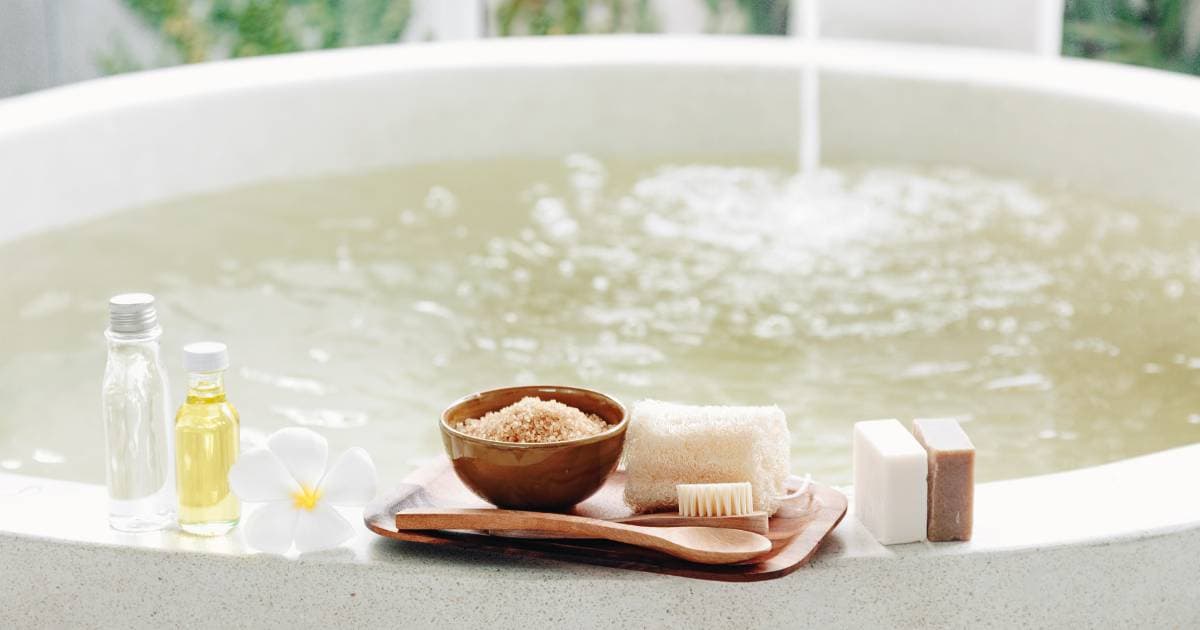
- Add 300-400 grams of Epsom salt to a bathtub.
- Leave it in the tub for 15 minutes or till it dissolves completely
- It will dissolve quickly if it’s left to mix under a running tap
- Take a bath for 20-30 minutes and gently massage sunburned areas
- Rinse your body after the bath and dry yourself with a towel
- Use a good moisturizing lotion afterward
- Repeat the bath once daily till sunburn is relieved
Epsom salt bath has the added advantage of soothing your muscles and joints.
Cold Compress
- Mix two tablespoons of Epsom salt in one cup of cold water
- Soak a clean cotton washcloth in this water
- Apply it on sunburned skin
Create a Paste
- Mix a teaspoon of Epsom salt in a cup of hot water and mix it
- Chill the mixture in the refrigerator for 20 minutes
- Clean and pat dry the skin and apply gently on sunburned areas.
Spray Bottle
You can also use Epsom salt water spray
- Mix two teaspoons of salt in one cup of water
- Put it in a water bottle with a spray
- Spray on sunburned skin multiple times daily
Our Recommendation
Dr Teal’s Pure Epsom Salt Soak
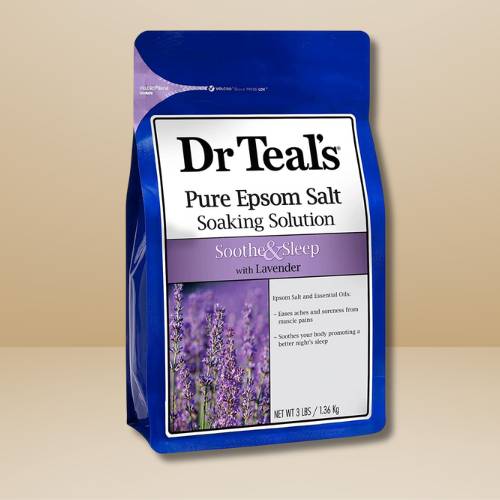
This product contains epsom salt with extra goodness of Eucalyptus and Spearmint for ultimate soothing effect.
It rejuvenates your skin and helps relax your body.
Better Sunburn Remedy: Aloe or Epsom Salt?
The use of Epsom salt shouldn’t be compared with aloe vera. Both have their roles in providing relief. Epsom salt has magnesium sulfate, whereas aloe vera has many components, which include Vitamins A, C, E, and B12 and some antioxidants.
Both have different modes of action. Aloe vera provides a cooling and soothing effect and helps reduce inflammation.
Both also offer many added health benefits.
Instead of comparing which therapy is better, you should know both treatments support and complement each other.
Moreover, you should also take ease of use and accessibility into account.
Some may not have access to a bathtub while traveling. Some may not like to use aloe vera because of its sticky nature.
In the end, it’s up to you what suits you better. You can try both therapies if you want. There is no downside or severe side effect of any of these.
Related: Shea & Cocoa Butter For Sunburn: Do They Really Work?
Does Chlorine Help Sunburn?
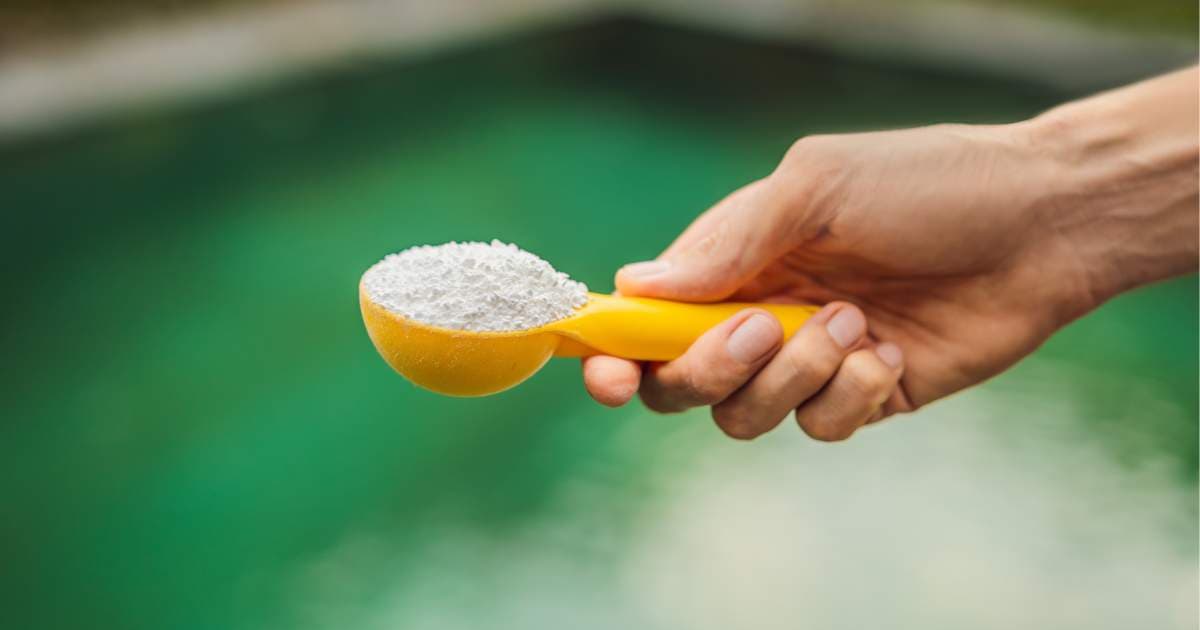
Chlorine is naturally found in seawater. It’s also used in pools as a disinfectant. Chlorine is used to kill harmful bacteria in the pool. While it has many benefits, protecting water from harmful bacteria, it may not help with sunburn. If you ever got a sunburn, you might have thought does chlorine help sunburn?
Chlorine is a harsh chemical. It can harm the skin and cause dryness, itching, and irritation. While healthy skin may not be significantly damaged, chlorine negatively impacts sunburned or injured skin. It can increase sunburn pain and irritation. It is best to avoid chlorine if you have sunburn.
You should avoid chlorinated water till you have completely healed from sunburn. Alternatively, you could use Epsom salt or aloe vera.
Conclusion
Epsom salt is an excellent home remedy for sunburn relief. It is a proven method that has benefitted many. Epsom salt baths can be beneficial to sunburn as they relieve discomfort and pain, decrease inflammation, nourish and cleanse the skin, and boost the overall health of your skin. It is crucial to remember that severe or prolonged sunburns must be treated under the supervision of a physician.
In addition, although Epsom salt baths are beneficial in treating sunburn, chlorinated water can irritate skin that has been burned and should be avoided until the skin is fully healed.
FAQ
Is Chlorine Bad for Sunburn?
Chlorine is harmful to sunburned skin as it aggravates symptoms of sunburn. It causes dryness and itching. It can cause sunburned skin to peel off due to dryness.

